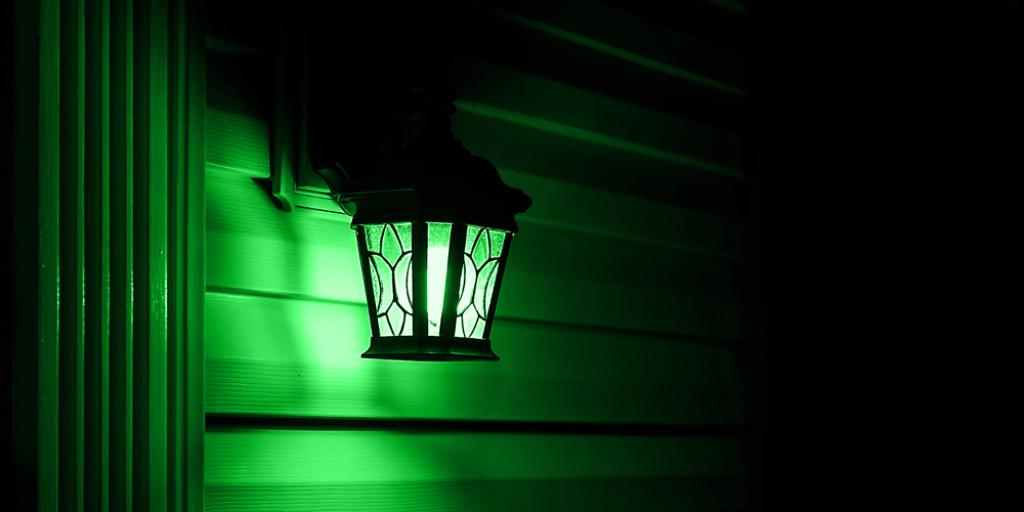
My husband and I exchanged glances; at her age we were Staff Sergeants already. The service had been our ticket out of poverty. “The Air Force is hiring,” he shouted toward the counter.
“Why on earth would I want to go in the military?” she asked incredulously, sandwich in hand. Once, I had wondered the same thing.
In 1975, I enlisted in the Women’s Air Force, following the footsteps of Greatest Generation women fighting for the right to serve. Shortly thereafter, I saw it dismantled. Integrated into the “real” Air Force, women were able to serve as more than just nurses and secretaries. As the base’s first female entomologist, however, there were lots of challenges. Opposition often came from strange quarters; I had to learn to rise above it. One event, I recall, was pivotal in my personal growth.
After receiving reports of boot camp trainees suffering from bird lice, our investigation indicated that pigeons nesting on rooftops and ledges were the source. All afternoon, my boss and I worked together treating affected dormitories. At quitting time, two remained incomplete.
“Look, you do that one and I’ll do this one, and we’ll meet back at the truck, okay?” my boss decided.
“Sure,” I replied, forgetting that all day I’d been relying upon him to go up the ladder first. Would I have enough strength to hang onto the ladder and my gear with one hand, and open the heavy trap door at the top with the other? “I’ll cross that bridge when I get to it,” I decided as I climbed to the top floor women recruits’ dormitory. I knocked on the door, and a small face appeared in the window.
“Civil Engineering- I need roof access,” I said, slapping my identification against the glass.
“I’ll have to get permission,” she responded. A moment later, I explained my mission to the woman in charge.
“This is great!” she replied. “I’ll have all the recruits watch so they can see how well a woman can do a man’s job!” Thus, as I nervously stood considering the trap door some twenty feet up, I had an audience.
“What’re you gonna do?” one asked.
“Climb up onto the roof.”
“You can’t do that,” said another. “You’re a girl.”
“She can and will!” corrected their instructor. “Ma’am, you just do your job, don’t mind us!”
“Some are born great…others have greatness thrust upon them,” I remembered. Would these girls even try to find out if they had the “right stuff” if I fell to my death, right here, right now?
“What you waitin’ for, ma’am?” a voice urged.
I looked at my watch. Marty was probably done already. Bracing myself, I tucked my gear under my arm and started climbing.
“Look at her go!” the instructor beamed.
“Gloria Steinem, where are you when I need you?” I wondered as I reached the top. Hanging on as tight as I could, I reached way over, perilously over, and pulled the handle. The hatch popped open, and, as the bright sunlight poured in, the crowd below gasped in delight. However, I couldn’t push it completely open the way Marty did. “Well,” I decided, “maybe I can open it as I go.” That small revelation enabled me to inch upward to look out, and later became the foundation of many subsequent “feminizations” of my tasks. Heaving my gear over first, I pulled myself up, nudged the door some more and gingerly raised a leg over the side. In a moment, I tumbled onto the roof. “Not lady-like, but you did it,” I congratulated myself; the pigeons nearby were not impressed. Stumbling to my feet, I tossed the bait at my critics, glanced at my watch and headed back down.
Audience reactions were mixed. “That wasn’t nothin’,” declared one. “Weren’t you scared?” asked another. “You’d never get me doin’ that,” and “That’s dirty work…” scoffed some. “Man’s work,” declared others.
“Good job,” the Sergeant reassured me. “See, ladies. You can do anything you want.”
Outside, I found that I had finished first. “Any trouble?” Marty asked as he walked over to stow his gear.
“Naw,” I smiled. “Let’s go.”
Although serving a career and, like many military women, often feeling ambiguous about my profession, I never questioned the importance of my ascent that day. In the coffee shop, however, I realized that I hadn’t been alone on that ladder. A lot of women had preceded me, women who worked hard so I could decide for myself whether to try to go up, or to stay down.
Veteran and author Kathy L. Baumgarten often touches on military topics as a form of outreach and personal therapy in her column in The Lake Champlain Weekly.
Topics in this story
More Stories
From Nov. 4 to 11, buildings and homes across the country will light up green to recognize the sacrifice and strength of our Veterans as they transition from military to civilian life.
Summer can be a joyful time of year, but some outdoor activities can be hard for some Veterans. In this guest post, former VA Secretary Bob McDonald shares resources and plans to navigate summer activities.
"A CAPITOL FOURTH" airs on PBS Thursday, July 4, 2024 from 8:00 to 9:30 p.m. E.T.







I was in the regular army, but still known as a WAC. I was a company clerk trained as a medic. I wanted to drive the ambulance, I was told no because I was a woman.
I told them, I could turn it over just as good as the men could. So the say you can’t drive it if you are going to do that, they had no sense of humor what so ever, I would not do that on purpose. maybe I just knew in war there would be roadside bombs. This is how are young soliders are being killed today. God has blessed me that I haven’t had to deal with that!
Great story Kathy! I remember as a young captain the period when women started being integrated into the “real” Army much as you described in your Air Force experience. Attending my career branch’s Officer Advanced Course, I was selected as “class leader” and was addressing my class of 90 junior officers for the first time. I noted only two women in the class, and knowing that they had perhaps not had the opportunity to serve in the variety of assignments as the male members of the class, I offered our assistance to them in those subject areas such as tactics that they could well have felt inexperienced in. It might have been my clumsy way of offering, but for whatever reason both of the women officers were deeply offended and did not hesitate to let me know about it in front of the whole class. I felt really bad that my good and humble intentions had been taken the wrong way. Years later I came across one of them and was greeted with enthusiasm. During our conversation she recalled that incident and apologized to me for the rebuttal and said she now understood why I made the offer and realized how sincere I was to have made it. Both of these women overcame obstacles and had successful careers (one of them reaching star-rank) after excelling in jobs that the previous generation could have only dreamed of. I am proud of these pioneers and happy to have served with them.